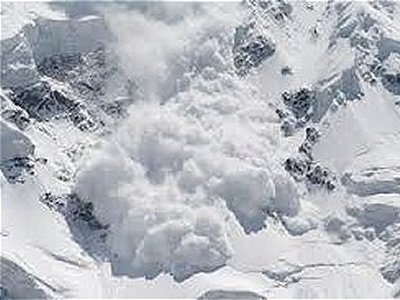AFTER THE SNOW
Does our response to a sudden moment of crisis define us or not?
The acclaimed Swedish film Force Majeure has a simple premise. An avalanche hits an Alpine ski resort while a family of four lunches. The mother’s response is to snatch the two children for protection. The father grabs the iPhone he has spent lunch looking at and legs it. A white fog descends on the hapless skiers, but this soon evaporates as the avalanche has run its course; no-one is harmed. The family’s world, though, has changed for ever. The key action takes place in the first ten minutes; the rest of the film is devoted to an examination of that event.
The old chestnut about what you would grab from a burning house usually presupposes human life is safe. In Force Majeure, the father instinctively saves the precious phone and leaves his children behind. Those with a pragmatic, uncomplicated approach to life may find the following two hours an excruciating display of continental existentialism as the father, Tomas, first evades responsibility for his actions and then succumbs to paralysing guilt, but there is much humour, truth and honesty in what transpires.
The unravelling of an affluent, professional, middle-class family on an Alpine holiday illuminates how brittle many relationships are beneath the surface. The trappings of success lure people into thinking that other families are always so much more ‘together’ than their own. Self-preoccupation dulls their intuition, leading to a misplaced and ill-judged social resentment. This Swedish family on holiday, moneyed, photogenic, entitled, is actually insecure and lacking in resilience. When a brief threat emerges, they cannot cope. The man, obsessed with checking his emails on holiday, underlines the value he places on technology when he chooses it over the people sitting across the table from him.
The writer asks: what would we do in a moment of panic? Does what we choose define us as a person, as Tomas feared? The Gospels addressed this question directly in the final hours of the earthly life of Jesus. The warning signs were flashing in neon for the disciples; Jesus was speaking with increasing regularity about betrayal, suffering and death, but this was so far removed from the miracle laden present that the disciples could only see it as a distant spectacle from which they were oddly detached, like the Swedish family initially taking photographs of the avalanche that would overtake them.
When disaster struck, the disciples were hopelessly unprepared for it. The instinct for self-preservation prevailed and, like Tomas, they beat a hasty and undignified retreat. Like many of us, the disciples had constructed an heroic image for themselves – Peter had said that all others might desert Jesus but he never would – which could not endure the savage unpredictability of life. In the film, Tomas’ wife Ebba, after some early reticence, lets her anger at Tomas spill over without much latitude for forgiveness. It is as if life is an endless waiting for one examination that we cannot anticipate and which we must either pass or fail without the chance of a re-sit.
The restoration of the disciples by the risen Christ burnishes a different image. For Jesus, their failure to support him on the night of his spurious trial did not define their future but became a healed scar from which they learned much. Their failure informed a specific fearlessness in the face of opposition which has described the best of the Church ever since. It was a forgiving Lord who made this possible. Tomas was mire in introspection and guilt, unable to stand again because of one memory he and his wife could neither leave behind nor learn from.
We are well informed of the risks of hubris in scripture. The Apostle Paul warned his listeners: ‘if you think you are standing, watch out that you do not fall (1 Corinthians 10:12); Jesus teaches his followers to pray that they are not brought ‘to the time of trial’ (Matthew 6:13). We are not faced with an unique test we either win or lose, for this would surely imprison us in regret or launch us into complacency. The results simply inform the way we approach the next challenge of discipleship. There is forgiveness and restoration for those who seek it.
POPULAR ARTICLES

Obama's Covert Wars
The use of drones is going to change warfare out of all recognition in the next decades.

Through A Glass Starkly
Images of traumatic incidents caught on mobile phone can be put to remarkable effect.

What Are British Values?
Is there a British identity and if so, what has shaped the values and institutions that form it?



